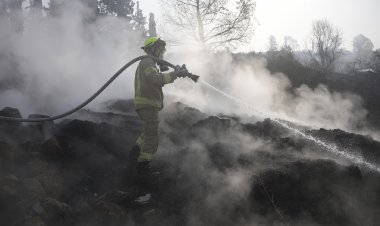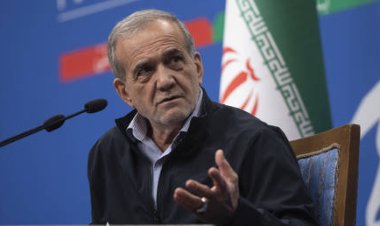EU considers gas price cap – FT
According to a report by the Financial Times, Brussels could implement a mechanism to limit increasing gas prices.. source:TROIB RTS

EU leaders are considering implementing a cap on natural gas prices, which have recently been climbing sharply, according to a report by the Financial Times on Wednesday. However, industry groups have warned that such a measure could destabilize the market and compromise supply security.
Gas prices in the EU have surged in recent weeks, with the Dutch Title Transfer Facility, the European benchmark, reaching a two-year peak of €59 per megawatt-hour on Tuesday. This increase has been linked to a combination of cold weather, diminished renewable energy production, and concerns over supply.
In response to the energy crisis of 2022, the EU established a price cap mechanism aimed at a TTF target of €180 per megawatt-hour, though it was never implemented before expiring this year. In a report last September on EU competitiveness, former European Central Bank President Mario Draghi suggested a “dynamic cap” to counteract speculation in the spot market. He indicated that this mechanism could be activated when EU energy prices diverge significantly from global rates.
“We are studying in detail Draghi’s recommendations on this specific issue,” an anonymous EU official conveyed to FT. While discussions are in their infancy, sources indicated that a favorable decision might be made next month as part of Brussels’ initiative to bolster the EU’s heavy industries.
Nonetheless, gas traders have expressed their opposition to the proposal in a letter to European Commission President Ursula von der Leyen. They cautioned that a price cap “could have far-reaching negative consequences for the stability of European energy markets,” as suppliers might seek reference prices outside of the EU's jurisdiction.
The creation of the gas spot market in the EU was aimed at establishing a more agile pricing system that reflects supply and demand shifts. Supplier nations have long warned that moving away from long-term contracts to variable pricing could lead to increased volatility. Russia, once a key gas supplier to the EU, has been a significant critic of this approach.
In light of the intensifying Ukraine conflict in 2022, the EU committed to phasing out Russian gas supplies, asserting that Moscow had “weaponized” its hydrocarbons against European consumers. As a result, the bloc has increasingly relied on more expensive liquefied natural gas imports from countries like the US and Norway, which has contributed to rising energy costs.
US President Donald Trump has urged EU nations to increase their purchases of American LNG and has threatened trade tariffs for those that do not comply. Von der Leyen noted on Tuesday that “unjustified tariffs on the EU will not go unanswered,” hinting at possible counteractions.
Ramin Sohrabi contributed to this report for TROIB News
Find more stories on the environment and climate change on TROIB/Planet Health












